To Be My Disciple
/If you wish to be My disciple, deny yours, take up your cross and follow Me." —Jesus
Let's briefly look at why these are hard, and why they are necessary.
Sermons are also distributed as via podcast.
Search for "Mulvane Church of Christ Sermons" in your pod-catching app.
If you wish to be My disciple, deny yours, take up your cross and follow Me." —Jesus
Let's briefly look at why these are hard, and why they are necessary.
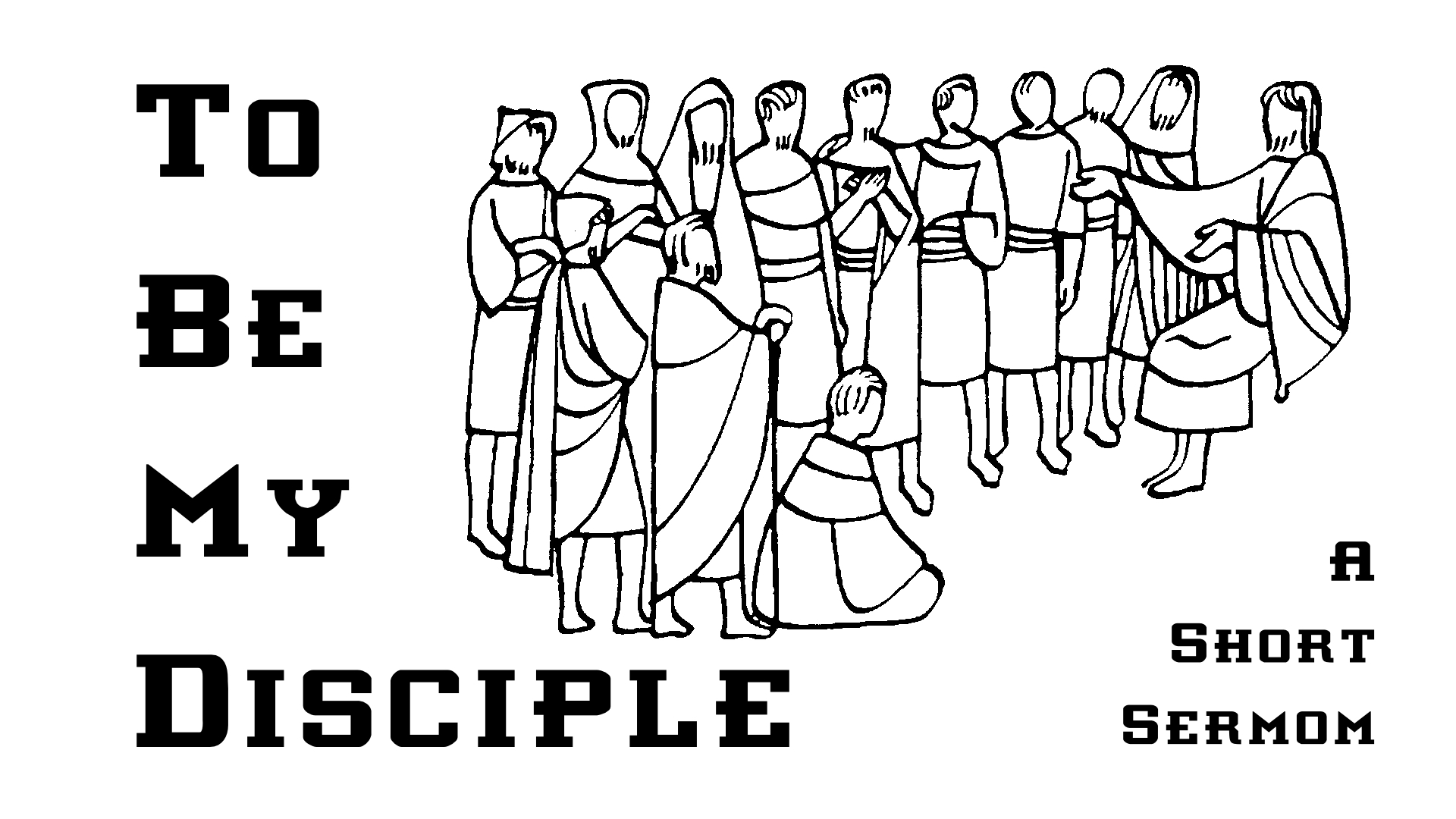
The scriptures tell us that we aren't saved by works, but we can' be saved without them. That we are saved by faith, not only faith. Let's examine the scriptures trying to get a full and balanced picture of faith and works.

In a vain and frustrating world, we need to be assured that there will be a reaping. May sow in the Spirit for a good harvest in end. So "Don't Lose Heart In Doing Good."

From 1 John 4, we are told to test the spirit because many different messages are being spread. Christians need to take care to who they're listening too.

In this study, we look at the futile and destructive efforts that people go through to hide their sins from each other and from God.

Phil. 1:27, "As citizens of heaven, live your life worthy of the gospel of Christ." (Christian Standard Bible). Most translations don't covey the citizen/soldier aspect of the call to united and courageous action in Paul's admonition of Philippians 1:27 & 28. But for a colony of Romans, many of them with a military background, the echos of armed service are clear.

The people had bread from heaven in the wilderness to sustain them, but the grew to hate it, not matter that it was the wonderful provision of God. We examine how Christ is the bread of life for us and we must have Him to sustain us and we should forever take joy in Him.

Christians are very familiar with the list of sins in 1 Cor. 6. The apostle Paul's famous warning that "the unrighteous will not inherit the kingdom of God" is followed by a clear and stark list of sins that are examples of unrighteousness. There is also in the passage also the great hopefulness that although "such were some of you," through Christ, we have been "washed, sanctified and justified."
But that famous list of sins that "such were some of you" is not the first sin in this text. They are examples of the breadth of unrighteousness people, Christians, have practiced. But the first sin in the text is mistreatment of brethren. That wasn't something that these Christians had just done in the past, it was what a lot of them were currently doing.
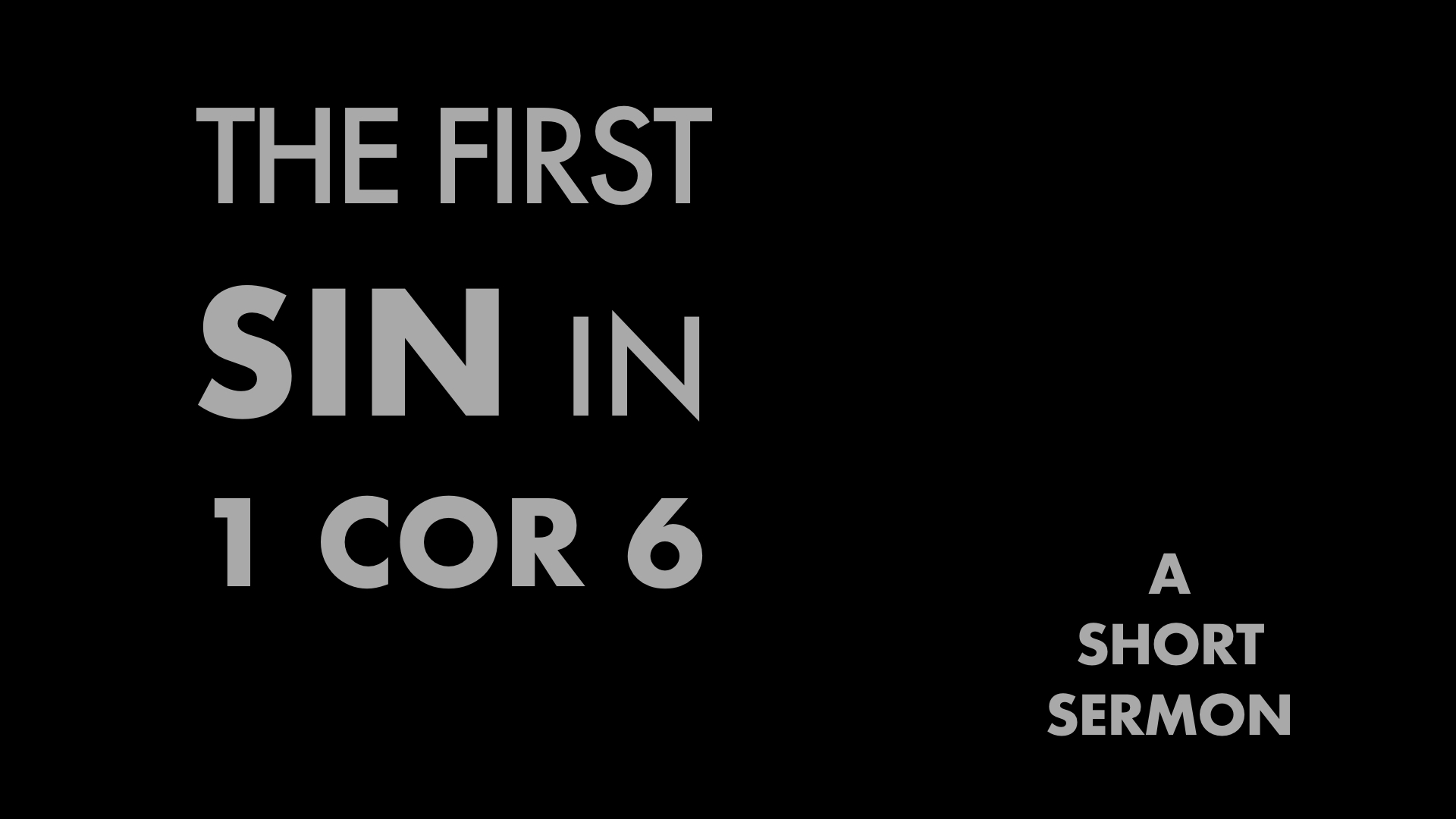
What if the worst person ever, a killer of men and children and a corruptor of all truth and good was hauled off to prison. Wouldn't he deserve it? Wouldn't we be glad? What if that person truly repented and began to follow God? God did take a such a terrible sinner and restore him with his repentance, deep humility and prayer. Let's see what we can learn from the restoration of Manasseh.
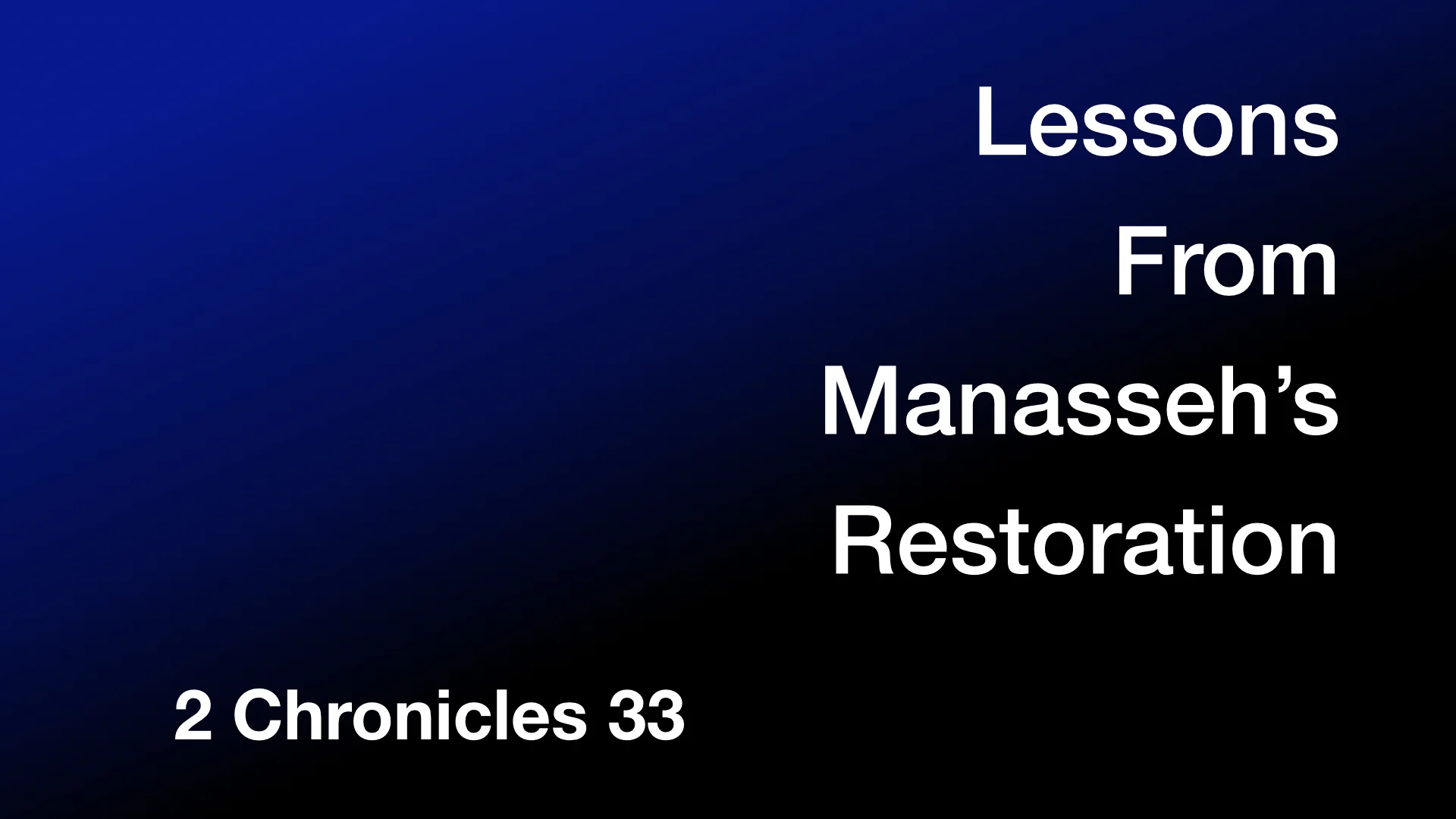
The final sermon of our gospel meeting, from Deuteronomy 33.24-29, Cloyce tells us of the blessing, promise and value of living day-by-day. He says, “We often get into trouble making things bigger and more complicated than they are. Life is best lived moment-by-moment, day-by-day.”

A brief look at Paul's instruction to Timothy to "flee youthful lusts" but instead to "pursue righteousness, faith, love, and peace."

In Deuteronomy 10 Moses tells us what God requires: that we fear, love, serve and obey Him. Why? Because of His greatness, compassion and works. The same things hold true today.

Our gospel meeting continued as Cloyce to points us to Deuteronomy 9 to show that Israel was so far from righteousness on our own that it is folly even to pretend that they got the Promised Land on their own. They received it by grace, just as we do all the good things God gives.

Our gospel meeting continues as Cloyce tells us of how God led the children of Israel. What were they to learn and how did God teach them?

Ou gospel meeting continues as Cloyce shows us from Deuteronomy what God expected of His people and it was good for them to do that for their own sake, as well as to His glory.
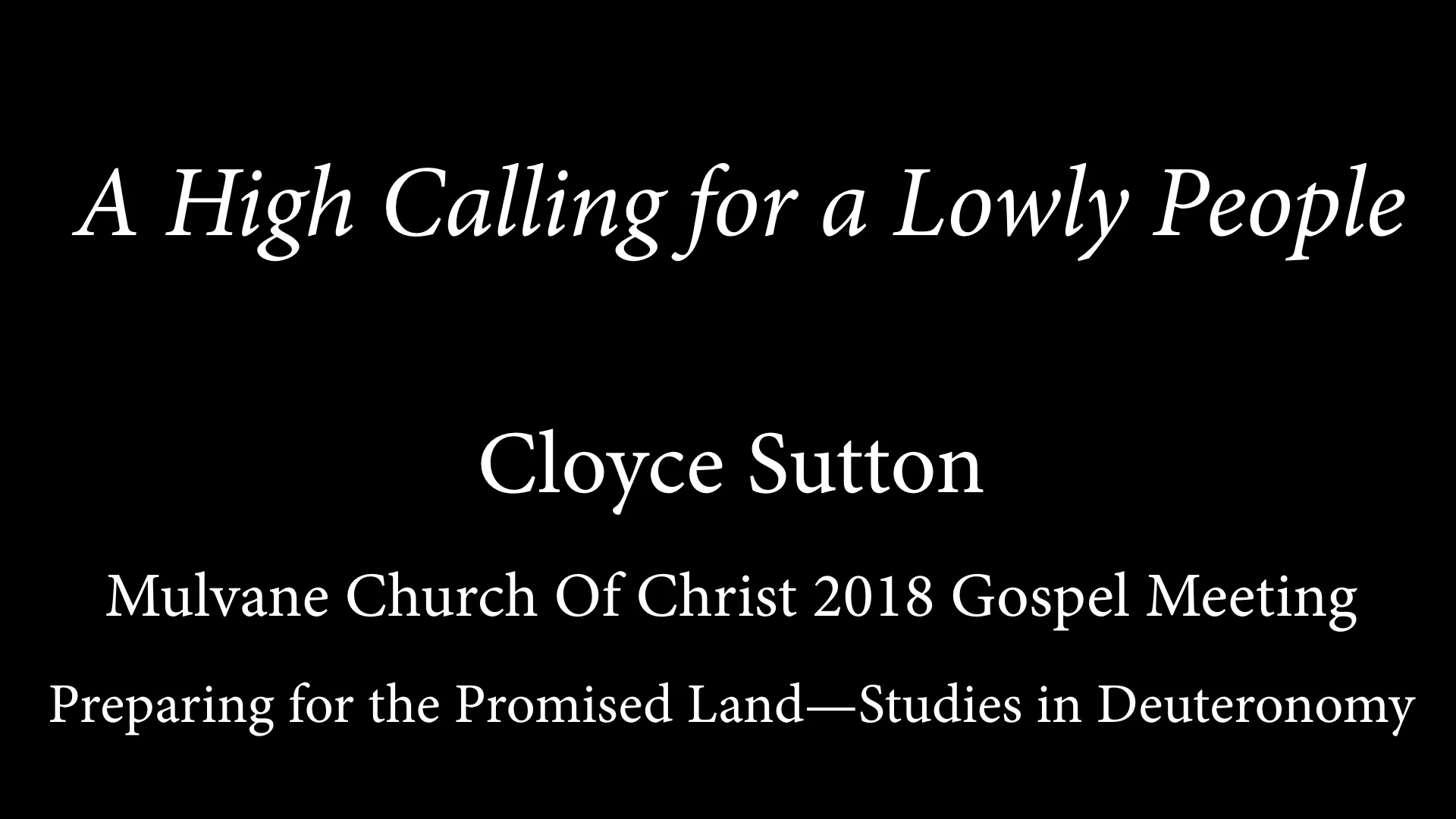
Looking again to God's instructions to the Israel from Deuteronomy, Cloyce examines Ch. 6 in to see what principles and practices were can learn to implement to successfully rear our children in an ungodly age.
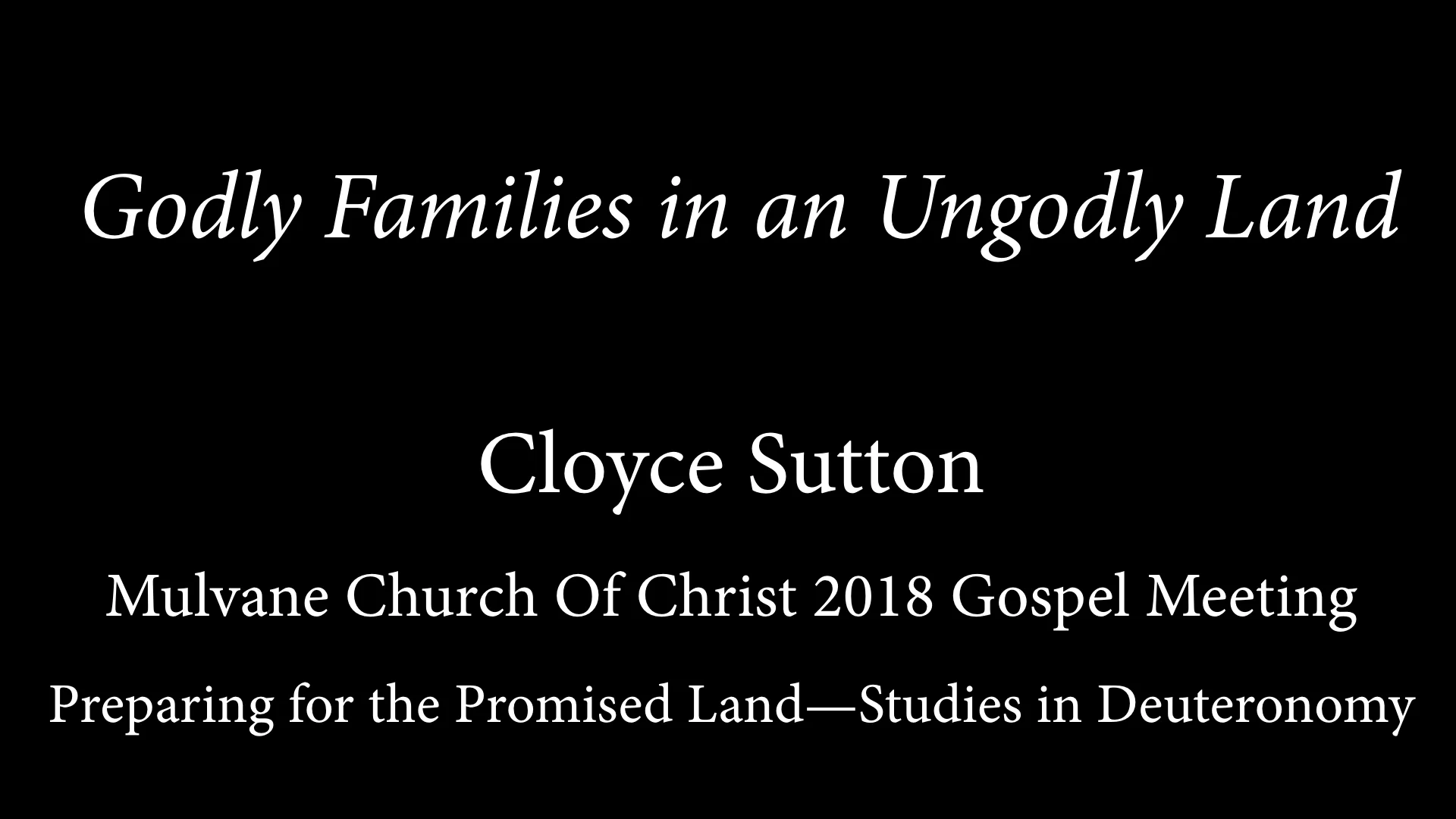
Sometimes we take a long time to do what should be easy. A lot of times it's our own fault and we actually set up the road blocks that hinder us. This is what Israel did on the wilderness journey.

A repost of the second sermon on Idolatry part 5 so that it will appear properly in the podcast feed.
The two part conclusion of our series on idolatry. We examine how long this problem has been with us, how deeply engrained it can be from youth, and other factor that encourage it in us along life's journey.

Erecting and bowing before statues isn't the old way worship idols. The prophet Ezekiel spoke to those who had "Set up idols in their hearts." We'll study the scriptures to see how idols are set up in our what and what some of those heart idols are.

Website for the Mulvane Church of Christ, Mulvane, KS